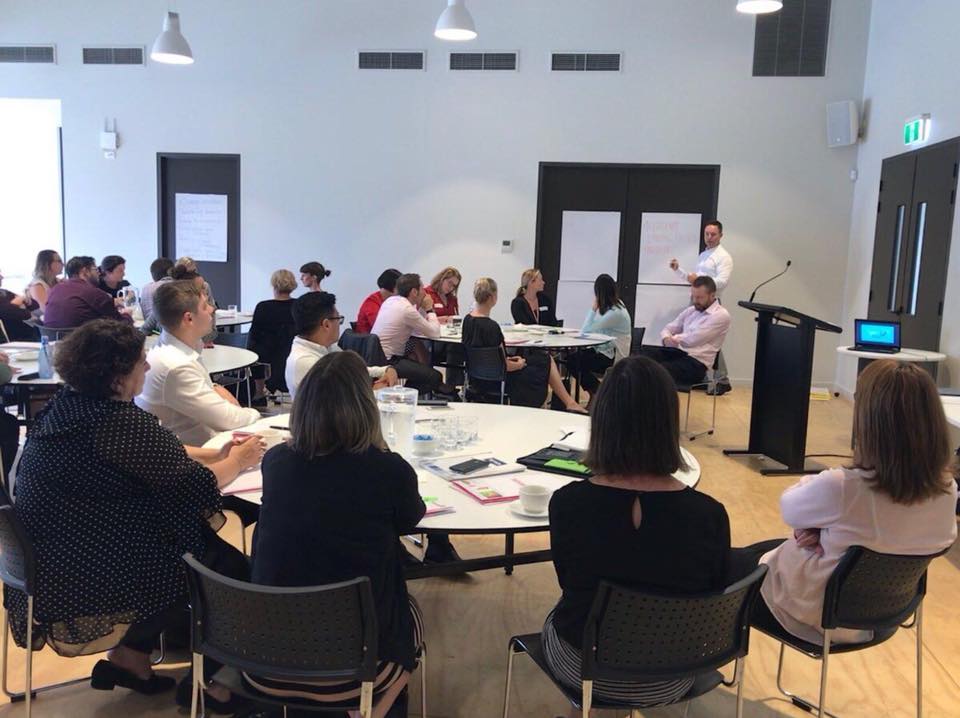This week we were delighted to have Mark Dean, Founder enMasse facilitate the Geelong HR Roundtable. Many attendees came from organisations experiencing change and some of the key challenges that were common to all were:
– Change resistance
– Leadership behaviours
– Impact on Longer Term Employees
– Organisation consistency
– Reality checks along the way
– Change fatigue – the pace and volume and its affects on staff
Mark walked us through a framework, coined by enMasse to successfully get through this process. The acronym “UCOPEA” was used and defined as follows.
U – UNDERSTAND THE FEELINGS
Usually change brings a number of responses from avoidance, to emotional responses (such as fear, anger, numbness) to problem focused. The key is to name the feeling. Until it is identified and further thought given to why individuals are feeling this way it is difficult to move forward.
C – COME TO TERMS WITH REALITY
A key is to determine what we can and can’t control. For example, we can’t control the change but we can control our response, the information we could gain to help us deal with the change, our apporach in the way we question aspects of the change or ultimately if we want to stay with the organisation.
O – OBSERVE AND REFRAME THOUGHTS
Mark took us through four lenses for thought reframing
1. The Learning Lens – What can I learn from this interaction/situation?
2. The Gratitude/Optimism Lens – What am I grateful for?
3. The Empathy Lens – How is it for the client or my colleague in this situation?
4. The Responsibility Lens – What part of this situation/interaction do I need to take responsibility for?
Many change antagonists have some deep feelings around a change and it is up to them and their manager to help them and continue to work on changing their thought responses to more productive ones. This, in affect, allows employees to turn the corner. Their negative thoughts become zapped and they move into more of an optimistic light in terms of how they adapt to the situation.
P – PROBLEM SOLVE
One thing leaders in an organisation can do to assist is have their team conquer “stress challenges”. Once a smaller surpassable challenge is overcome, the team feels invigorated and confident. The leader can then help with the next bigger step change. Knowing and being confident they have overcome a smaller challenge gives the team the optimism that they can achieve again.
Problem solving looks at the outcome required, the strategy that will be employed and the actions needed to get there.
E – EVALUATE HOW YOU’VE GONE
Once a challenge, change, or event has been addressed, it is important to look at what went well and why it worked and conversely what didn’t work well.
A – APPLY THE LEARNINGS
When the team has achieved, confidence may be a positive outcome and openness to go again. However, be aware of relapse. We all know how long it takes to make something a habit. We need to beware of relapse and use repetition to continue to build our strength in responding to and managing change. It’s vital the UCOPEA framework is resorted to again, particularly if there is slippage or relapse, to allow your team to continue going up the hill towards the pinnacle of change versus sliding back.
And… to get through change with energy left in the tank? Mark said if we all focus on our key character strengths and do not compromise, it brings out our best and enables us to get through the change while still feeling good. The University of Pennsylvania has a VIA test which is a “Character Strength Test” it lists 24 key characteristics of people and via survey you will learn your signature strengths. By playing to your signature strengths your ability to cope and thrive within a changing world will keep you mentally healthy throughout the exercise.
Article written by Maree Herath, Harvest Recruitment & Human Resources Director.

